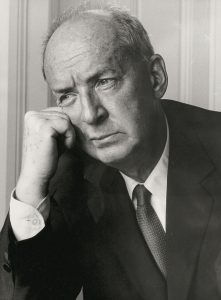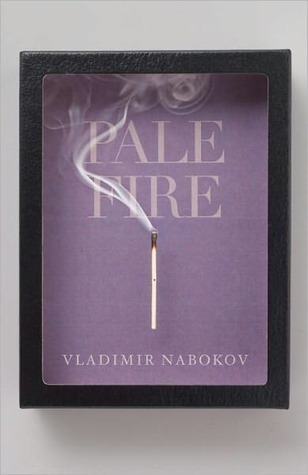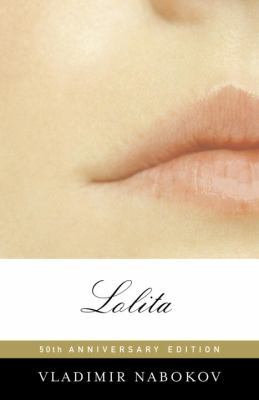 Vladimir Vladimirovich Nabokov, also known by the pen name Vladimir Sirin, was a Russian-American novelist. Nabokov wrote his first nine novels in Russian, then rose to international prominence as a master English prose stylist. He also made significant contributions to lepidoptery and had an interest in chess problems.
Vladimir Vladimirovich Nabokov, also known by the pen name Vladimir Sirin, was a Russian-American novelist. Nabokov wrote his first nine novels in Russian, then rose to international prominence as a master English prose stylist. He also made significant contributions to lepidoptery and had an interest in chess problems.
Nabokov’s Lolita (1955) is frequently cited as his most important novel, and is at any rate his most widely known one, exhibiting the love of intricate wordplay and descriptive detail that characterized all his works.
Books

Pale Fire
In Pale Fire, Nabokov offers a cornucopia of deceptive pleasures: a 999-line poem by the reclusive genius John Shade; an adoring foreword and commentary by Shade’s self-styled Boswell, Dr. Charles Kinbote; a darkly comic novel of suspense, literary idolatry and one-upmanship, and political intrigue.

Lolita
Awe and exhiliration–along with heartbreak and mordant wit–abound in Lolita, Nabokov’s most famous and controversial novel, which tells the story of the aging Humbert Humbert’s obsessive, devouring, and doomed passion for the nymphet Dolores Haze. Lolita is also the story of a hypercivilized European colliding with the cheerful barbarism of postwar America. Most of all, it is a meditation on love–love as outrage and hallucination, madness and transformation.
We are most artistically caged.
Do not be angry with the rain; it simply does not know how to fall upwards.
It was love at first sight, at last sight, at ever and ever sight.
He broke my heart. You merely broke my life.
Curiosity is insubordination in its purest form.
Let all of life be an unfettered howl. Like the crowd greeting the gladiator. Don’t stop to think, don’t interrupt the scream, exhale, release life’s rapture.
Our imagination flies — we are its shadow on the earth.
My loathings are simple. stupidity, oppression, crime, cruelty, soft music. My pleasures are the most intense known to man: writing and butterfly hunting.

